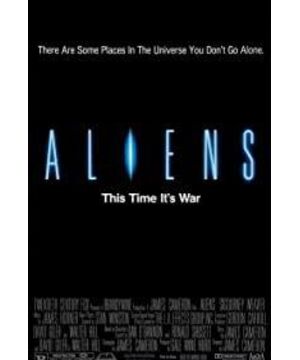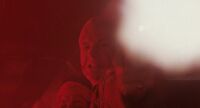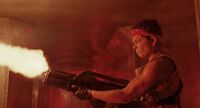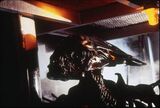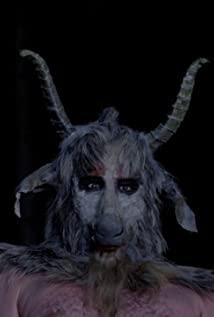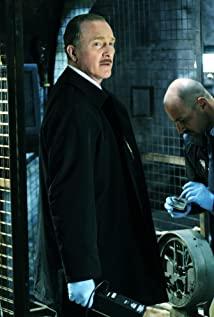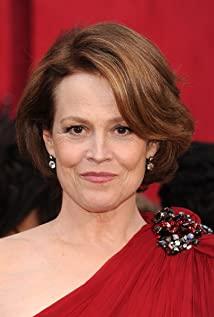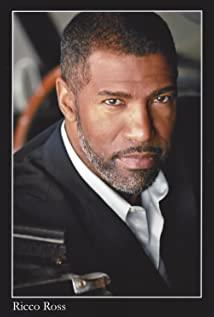When we look at Cameron’s "Alien 2" and the first episode shot by Radley Scott in 1979, we will find that the two films are actually very different from each other. In addition to inheriting the alien appearance designed by the Swiss artist HR Giger and its overflowing saliva, Cameron has almost forgotten the overall style, expression methods and core concepts conveyed in the first episode. Later, another alien world was created that was soaked in the popular and popular film culture of the 1980s in the United States.
It now appears that the first episode of "Alien" is a complete reaction to the "Star Wars"-style sci-fi movie with grand scenes but with "children" values. It has a fascinating form and a deep theme. Although it is covered in science fiction, it is more like a Hitchcock-style thriller that took place in the space age. Although the third and fourth episodes filmed in 1992 and 1997 have different reputations, they also have their own characteristics: the former has a strong atmosphere of apocalyptic destruction, and the latter is more like a horror fairy tale in outer space.
In general, the remaining three episodes highlight the cult characteristics of the alien series in different ways. Only the second episode of Cameron completely escaped the overall style of this series and became a B-level action movie of heroes fighting monsters.
To analyze the difference between "Scott Alien" and "Cameron Alien" may have to go back to the differentiation of Hollywood genres in the 1960s and 1970s. The large-scale film system gradually disintegrated in the two decades after the war, and the astronomical amount of money similar to "Cleopatra" cost almost all the lives of Fox in the twentieth century, but could not make much of the so-called "blockbuster". "This has made many Hollywood filmmakers realize that high-cost large-scale production is no longer a cost-effective business, and commercial films with small and medium costs that make full effort in content and action are the future trend.
Since the 1970s, Hollywood has hatched two different medium-cost film production directions:
One category is relatively serious-sounding, crime, horror, suspense, or horror as the type, involving detectives, gangsters, political and social shady, adventure, disaster, and even supernatural mysterious phenomena, such as "French Drug Network" and "The Godfather" "Chinatown", "Willow Alley", "TV Station Storm", "Hot Day Afternoon", and even "Jaws", "Exorcist" and "The Shining" are different types of films developed in this production direction.
The other type is likely to be influenced by the "New Westerns" that emerged in the 1960s, tending to create distinctive hero images, and use various action scenes as the core content of the film, such as "Dirty Harry "Desperadoes" can be regarded as a pioneering work in this direction. It should be said that in the initial stage, this type of production attitude is still quite serious and with a strong expressionist color. But when muscular men such as Stallone and Schwarzenegger became rising "action superstars", and films tailored for them such as "First Blood" and "Lonely in the Dragon Pool" became a popular trend, this type of action The film fell into the abyss of "no brain". In addition to the simple and weak plot that can be summed up in one sentence, chasing cars, pouring bullets, unarmed combat, serial explosions, and the hero who can't die by any means have become iconic features. These films did not cost much, but they were enthusiastically sought after by American audiences holding popcorn, and became the typical "Hollywood Money Printing Press" type movies of that era.
We can think of Scott’s "Alien" as an extension of the first type of production direction: it has very few action scenes, and the main villain’s appearance in the film is only a few minutes, but it uses a lot of time. His pen and ink portrays the tense atmosphere, blending the core of the suspense thriller into the setting of the science fiction film. At the same time, it also contains a pan-politicized motif: the deadly enemy is precisely conceived from one's own body, alluding to the continuous evolution and infiltration of ideological enemies during the Cold War.
Cameron’s "Alien" went in another direction: at that time he just wrote the first script for the "First Blood" sequel, and sent Rambo, a veteran who was still fighting alone in a small town in the United States. Back to the battlefield in Vietnam. At this time in the 1980s, Vietnam War films of various grades were very popular on the full screen in the United States, so Cameron couldn’t help but sway this group of Marines who should have appeared in the jungles of Southeast Asia. Space, at the same time, "trained" the heroine Ripley into a female version of Rambo: In the previous and subsequent "Alien" series of movies, she did not really engage in a long-term frontal action conflict with the Alien, but tried her best In the situation where the body is at a disadvantage, she uses her mind and spirit of sacrifice to fight against it (this is an important difference between humans and aliens); only in "Alien 2", she opens the bow left and right holding an automatic weapon and flamethrower and more Countless aliens fought violently, and in the end they simply drove the robot and fought hard with the alien queen.
These action settings not only show Cameron’s extensive thinking soaked in the spirit of Hollywood entertainment—obviously he believes that action fighting is the core of the film, but also embodies his and Scott’s views on the "alien" at the value level. There is a huge difference in the understanding of concepts: in Scott’s vision, wisdom and emotion are the signs that distinguish humans from aliens; but in Cameron’s view, humans clearly defeat their opponents because they are more capable of fighting. Rambo in "First Blood".
Characters’ facial makeup personality is an important reason for the tendency of "Alien 2" to become drooling: these Marines’ lockers have photos of naked women, full of swear words, male fighters are either reckless or timid, female The warrior is like a man and woman, and the agent from the "company" is greedy, cunning, and selfish without surprises, and completely falls into the eyes of money.
Such cliche character images are scattered in various B-level Vietnam war films, action films and crime films in the 1980s. Cameron seems to have extracted them from the various films and bundled them together and threw them into "Alien 2". As a result, they each repeated the most routine saliva lines and the most template gags, sweeping away the tense atmosphere of "Alien 1" originally with mysterious suspense, leaving behind a group of Americans who felt that they were born in a small-scale farm. The soldiers squatted in the alien base while fighting monsters while chattering about the countryside.
Matching with the facialized characters is the most conventional action film plot: the main characters encounter escalating difficulties during the execution of the mission-weapon prohibition, spaceship crash, member infighting, base explosion, traitor appearance, power cut, etc. Wait. The protagonist faces ever-increasing risk pressure and continues to explode with a stronger potential to overcome difficulties and defeat all opponents.
It can be seen that Cameron is a qualified Hollywood screenwriter who knows the secrets of commercial dramas. The plots and the ways of grafting them in "Alien 2" are all structural routines that appear as examples in various drama textbooks. Cameron's only purpose in connecting them together is to pave the way for the logic of fights that come one after another. He tries to avoid making the plot too abrupt and disturbing the integrity of the action scenes, and is committed to letting the protagonists play with the aliens in a reasonable structure of the story.
The pursuit of fierce battle scenes and special visual effects made "Alien 2"'s directorial approach "simple and crude". In Scott's first episode, every attack by the alien against humans is mysterious, short and powerful, and extremely explosive. And Scott cherishes the ink like gold, and never shows the audience the full picture of the alien before the end of the film-he deeply understands the charm of omission and white space.
In Cameron’s second episode, when the aliens were crowded in rows of formations in the base channel and almost impenetrable, we realized that the mystery of this strange creature was of course no longer available. Instead, Cameron replaced them. The idea of militarization-facing the American soldiers is an enemy force with alien hoods more than them. So far, the idea of the vulgar Vietnam War movie has penetrated "Alien 2" to the point of nowhere.
In fact, during the production of the film on the British studio, Cameron’s idea of a director was repeatedly questioned by the British filming team, and many of them were members of the Scott’s "Alien" team or the first episode of "Alien". diehard fans. As a result, the two sides continue to conflict. After Cameron fired the disobedient director of photography Dick Bush, the entire team stopped. It took his wife and producer Gail Ann Hurd to repeatedly persuade the crew to return to work. The final appearance of the film also proved the British team's concern. The second episode of "Alien" did not inherit the first episode, but went to the opposite of the previous one.
Cameron’s "Alien" was explored by critics, and the feminist theme of motherhood he planted in it (it is said that Sigourney Weaver decided to take over the lead role) Episode 2). It is not only reflected in the process of carrying out the mission, the heroine Ripley has grown from a "consultant" to the leader of the straight men in the United States, but also in her love for the little girl Newt. Here, Cameron directly applied the psychology of concise Hollywood drama: Ripley had been sleeping in space for seventy years, and when he returned to human society, he found that his only daughter had died and had no children. So when she found the surviving Newt in the abandoned alien base, she directly developed a mother-daughter affection for her, so that when the latter was taken away and turned into a "alien petri dish", Ripley would go to death desperately. rescue. But in the depths of the base, she met the alien queen who was laying eggs (seeing here we realized that Cameron envisioned the alien as an ant). In anger, she used a flamethrower to burn all the eggs she gave birth to. As a result, the Alien Queen has also become a mother who has lost her "child". The final boss battle of the film is actually between two angry mothers.
Although Cameron’s idea is also cleverly counterpointed, the final effect is to turn the original cyberpunk sci-fi cool movie into a "hot mom" tearing up the battle. The foreign guns were replaced with earthen guns, and Rafite became the old man. Although such a setting is in line with the American audience with a strong sense of family, it makes the film's overall temperament irreparable.
"Alien 2" is a typical popular commercial film in the 1980s. Cameron threw various elements such as Vietnam War, science fiction, feminism, mother-daughter relationship, rampant ant-like monster aliens into a fixed type of narrative framework, and vulgar criticism of capitalism's view of money. It has become a hodgepodge, and the ultimate goal is only to allow the protagonists to exert the powerful and superhuman physical strength on this basis, using fists, pouring rain of bullets and guns and flamethrowers to create the visual and sensory pleasure of action king.
It is a successful entertainment film, but in the Alien True Story series (not to mention the "Guan Gong vs. Qin Qiong" funny "Alien vs. Predator" for the time being), it is one of the most "hulutun" temperament in the dregs of earth. Department. Compared with the previous work, it can even be described as follows: The difference between Radley Scott's Alien and James Cameron's Alien is the distance between a Porsche 911 and a farming tractor.
View more about Aliens reviews


